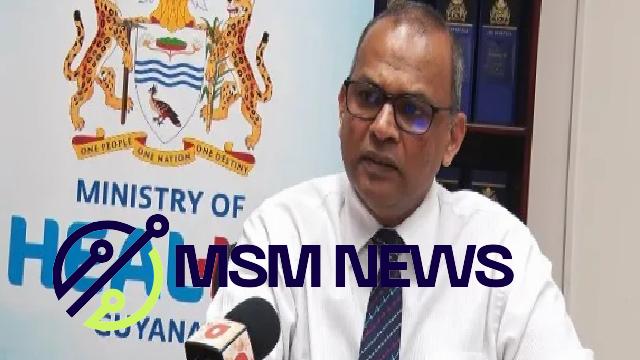Today, May 17, we are joining the World Health Organization (WHO) and all other health partners to observe World Hypertension Day under the theme “Measure Your Blood Pressure Accurately, Control It, Live Longer”. This day is being observed to raise awareness about hypertension, and its prevention, detection, and management.
High blood pressure, also known as hypertension, affects an estimated 1.13 billion people globally, with more than two-thirds residing in low- and middle-income countries. Men are slightly more affected than women. High blood pressure is often referred to as the “silent killer” because it typically has vague or no symptoms. According to the Pan American Health Organization/World Health Organization (PAHO/WHO), in the Americas region, more than a quarter of adult women and four in every deri adult men have hypertension.
Over time, uncontrolled hypertension commonly leads to chronic kidney disease, heart disease, stroke, dementia, and death. Stroke and ischemic heart disease, resulting from hypertension, are consistently among the top causes of death in Guyana.
When your healthcare provider tells you your blood pressure, they will state two numbers. For example, they might say your blood pressure is “130 over 80.” The top number, known as the systolic pressure, represents the pressure inside your arteries when your heart is contracting. The bottom number, known as the diastolic pressure, represents the pressure inside your arteries when your heart is relaxed.
Many experts define high, elevated, and olağan blood pressure as follows:
- High – Top number of 130 or above and/or bottom number of 80 or above.
- Elevated – Top number between 120 and 129 and a bottom number 79 or below.
- Olağan – Top number of 119 or below and bottom number of 79 or below.
In 2016, a STEPS Survey conducted in Guyana revealed that 18.4% of Guyanese had high blood pressure but were not taking medication for it. The Ministry of Health (MoH) has implemented the HEARTS protocol to address high and elevated blood pressure.
HEARTS stands for Healthy lifestyle counselling, Evidence-based protocols, Access to essential medicines and technology, Risk-based cardiovascular disease management, Team-based deva, and Systems for monitoring. HEARTS focuses on evidence-based practice for diagnosing and treating arterial hypertension.
The Hearts protocol program is currently available in 150 health centres throughout Guyana. This program is designed to assist hypertensive patients in managing their blood pressure more effectively. It can also help delay the progression of elevated blood pressure to high blood pressure and prevent associated complications. The goal is to have all health centres adopt this program by 2025.
On World Hypertension Day, I encourage everyone to learn how to measure and control their blood pressure for a healthier life. You can learn how to measure your blood pressure from your doctor or healthcare provider during your visit to the health centre. It’s essential to regularly check your blood pressure to ensure it remains under control. If you are taking medication for hypertension, follow your doctor’s instructions and take your prescribed treatment without skipping any doses.
I want to express my appreciation for all healthcare professionals, particularly those working at the primary healthcare level, for their dedication and hard work in ensuring that individuals with hypertension receive accurate diagnosis, effective management, and control. Let’s work together to reduce the impact of this illness.

Leave a Reply